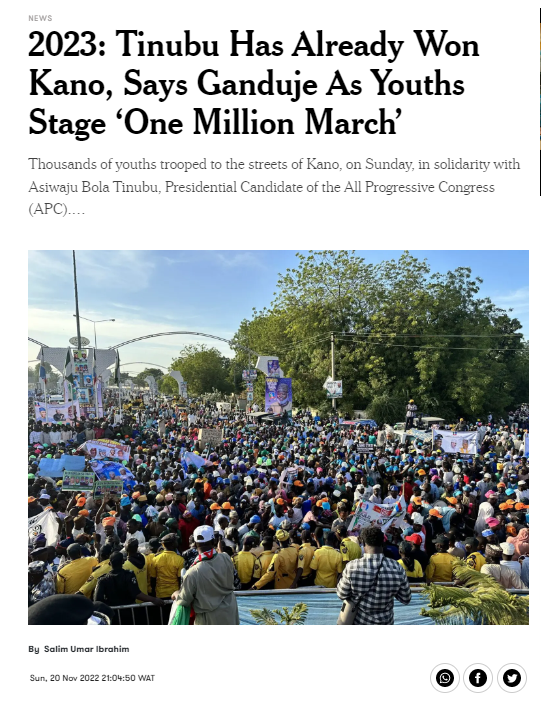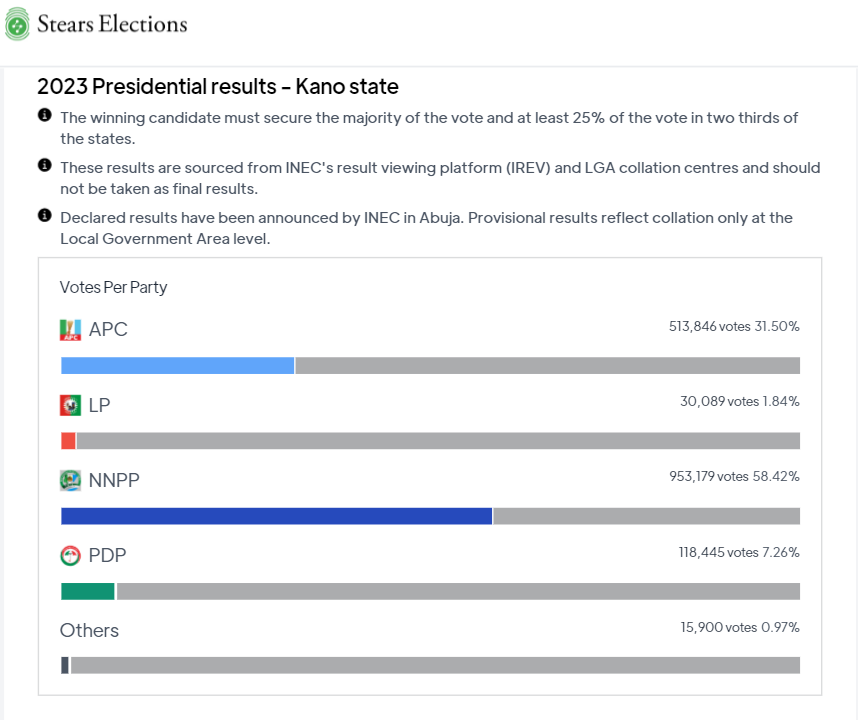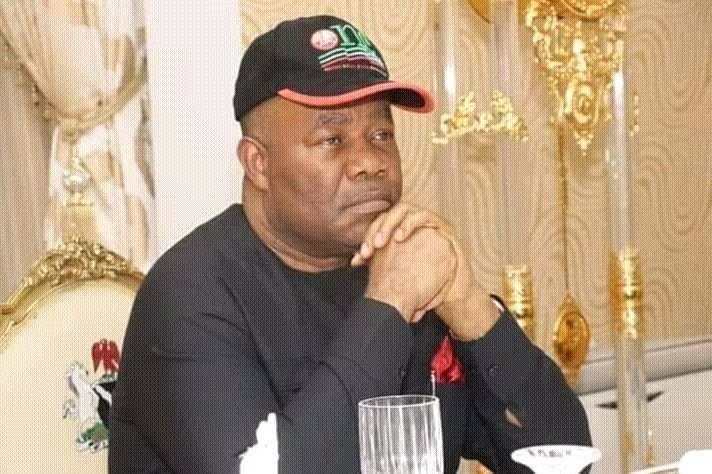Three significant events stood out this week in Nigeria. Depending on how you look at them, they elicited reactions ranging from sheer outrage to ineffable joy. For Navigating Nigeria, we’ll take you through the rollercoaster moments that made this week memorable as July comes to a close.
Our journey begins in Nigeria’s Red Chamber, the Senate.
Akpabio’s gaffe
While Nigeria’s Senate President, Godswill Akpabio, may have reached the apex of his political career, it seems he is still looking to outdo himself by how deep in trouble he can put himself in. We haven’t forgotten his public confession when as the Minister of the Niger Delta, he fingered members of the House of Representatives (HOR) whom he claimed benefitted from some lucrative contracts. It took the intervention of one of them on live TV to beg Akpabio to “off his mic” to stop him from incriminating everyone.
Akpabio, described as an “uncommon” senator, has promised to run an uncommon Senate. As he’s learning rather quickly, uncommon can become unpopular in a jiffy. In a viral video from a plenary session during the week, Akpabio asked the Senate to vote on a prayer to “let the poor breathe”. The manner of delivery, which appeared to be mocking, didn’t sit well with Nigerians. They lashed out at the uncommon senator.
The office of the Senate President had to issue a press release. It clarified that it was a “harmless statement” based on a motion moved by another senator to halt the electricity tariff hike.
Nigerians aren’t smiling during this period. The last thing they need is a legislature that makes fun of their plight. Let’s hope Akpabio has learned his lesson.
Tinubu’s ministerial list
President Tinubu’s ministerial list finally reached the public and was met with mixed reactions. Early observations indicated that the list had just 28 names. The names were also weighted in favour of career politicians ahead of technocrats. No portfolios were attached to them either, which is unusual. Tinubu’s Chief of Staff, Femi Gbajabiamila, said it was intentional. Here’s how he explained it to the press:
“So many of these things have merits and demerits, advantages and disadvantages. I like the idea of attaching portfolios. I do because it makes it necessary for the Senate to know exactly what you’re asking and looking for.
But for now, it’s been thought wise that we stick to the tradition of sending the names and then, while the screening processes are going on, allow Mr. President and his team to look at the portfolios and the characters and see how they fit.
The first step that he has done is that these people can work wherever you put them. Except in specialized fields like attorney general and what have you. But in the main time, he believes most of them can fit in anywhere.”
Constitutional lawyer, Festus Ogun, isn’t having any of that.
The Senate plans to begin screening on Monday. It’ll be curious to observe how that plays out.
Download the Citizen Election Report: Navigating Nigeria’s Political Journey
All hail the Super Falcons
[Osinachi Ohale and Onome Ebi celebrate at the full-time whistle. Photograph: Bradley Kanaris/Getty Images]
By the time you read this, at least two days will have elapsed since the events of that heroic night on July 27 in Brisbane, Australia. Nigeria’s female national team, the Super Falcons, beat Australia with a 3-2 score at the ongoing FIFA Women’s World Cup.
Football unites Nigerians more than anything, and for those 100+ minutes of that engaging contest, Nigerians went through all the motions together.
The match stats tell an exciting story.
For the most part, the Australians had control of the ball and dominated early proceedings. Nigeria, which had a solid defense for most of the game, conceded first in the 45th minute. The atmosphere was rapturous, and it looked like we would head into half-time with a loss. But the antifragile Super Falcons had different ideas.
In what was effectively the last kick of the first half after 5 minutes of added time, Uchenna Kanu scored a wonderful goal—a combination of good play and a fortuitous deflection. Cue the reactions from Nigerians halfway across the world.
1-1, halftime.
By the second half, our ladies were amped. In the 65th minute, our star striker, Asisat Oshoala, was introduced to the pitch. You could hear the palpable silence in the stadium, almost as if the Australians could foretell the pain that was to come.
Osinachi Ohale put us ahead a minute later, despite getting a heavy knock in the process.
2-1, Nigeria.
Oshoala tormented the Australian backline and got her reward in the 72nd minute after a mixup in the Australian defense allowed her to score a brilliant goal from a wide angle. Taking off her shirt in celebration may have earned her a yellow card, but the iconic celebration will live long in the memory of Nigerians.
3-1, Nigeria.
[Asisat Oshoala of Nigeria celebrates after scoring her team’s third goal. (Photo by Justin Setterfield/Getty Images)]
Her goal made her the first African woman to score at three World Cups. She previously scored in 2019 and 2015. And while the Australians managed to pull one back deep into stoppage time, Nigeria, led by coach Randy Waldrum, emerged triumphant with three goals and three points.
3:2, Nigeria. FT.
The result leaves us at the top of the table and in a good position to make the next round. A draw in our last game against already-eliminated Ireland would be enough. This is remarkable, given the team’s issues leading up to the showpiece.
Allegations of misappropriation, delayed payments, and a war of words between Waldrum and the Nigerian Football Federation (NFF) led many to fear the worst. But after a resilient showing against Olympic champion Canada, where we earned a point, there was some hope that the girls might be up to something, and they delivered in fine fashion.
Whatever they do going forward, the Super Falcons deserve our utmost respect for acting professionally and bringing joy to the faces of millions of Nigerians. As always, we will be cheering them on and hope they have fun doing what they do best.
Nigeria’s next match is on Monday, July 31, at 11 a.m.






